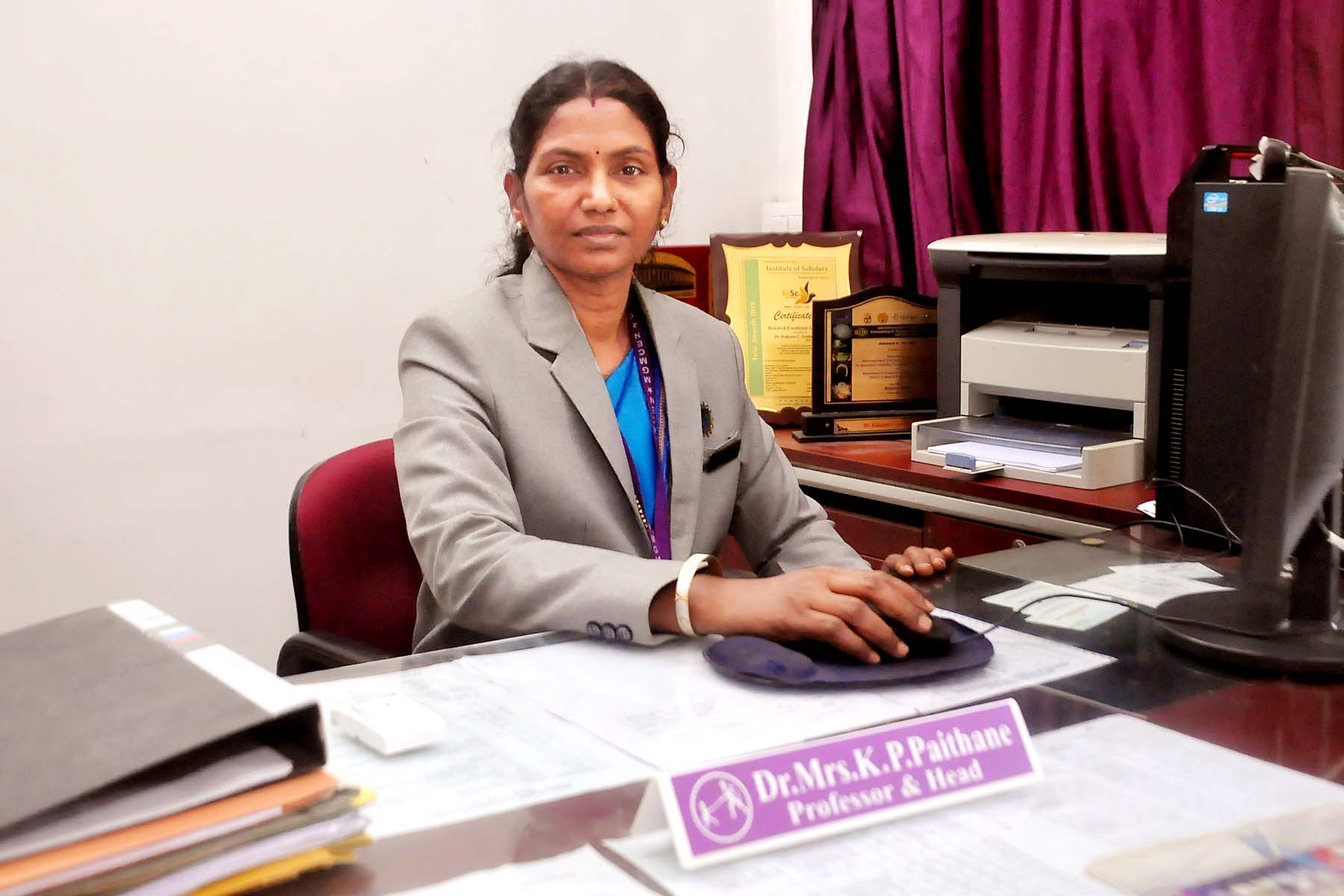
Electronics & Telecommunication Engineering

Dr. Mrs. Kalpana P. Paithane _Jondhale
Professor & Head, Dept. of ECT
jondhale_kc@mgmcen.ac.in
Electronics and Telecommunication has become now part of our day-to-day life, from the Mobile Phones to Televisions, Computers to Advanced Satellite that are helping us to lead a smooth and comfortable Life.
The Department of Electronics and Telecommunication has been successfully functioning since 1988. It offers B.Tech (Electronics and Telecommunication Engineering) Program with an intake of 60 students and M.Tech. (Electronics and Telecommunication Engineering) Program with an intake of 18 students. The Department is having excellent infrastructure and resources in the form of modern equipped laboratories and well-qualified, experienced faculties and supporting staff. E & TC graduates can develop exciting career in industries like Consumer Electronics, Manufacturing Organization, Telecommunication, IT Industries, Healthcare Equipments Manufacturing, Mobile Communication, Internet Technology, Power Electronics and many more industries like Steel, Petroleum etc.
Electronics and Telecommunication graduates are having huge job opportunities in Government Sector and Private Companies in the areas of Design, Manufacturing, Installation, Operation and Maintenance of Electronic Equipment and Electronic Systems. With the advancement in the latest technology, new opportunities have come into existence for E & TC Engineers. The latest technology includes Self-driving Cars, Autonomous Drone Logistics, Robotics, Automation in Industries, Smart Energy System etc.
Graduates of Electronics and Telecommunication Department are placed in Government Sector like HAL, BSNL, BEL, BHEL and also in various top MNCs like Infosys, IBM, Reliance, Tech Mahindra, Sankalp Semiconductors etc. Many graduates are pursuing their higher education aboard.
| Department Location | North Wing First Floor |
| Year of Establishment | 1988 |
| Head of Department | Dr. Mrs. Kalpana C. Jondhale _Paithane |
| Contact No | 02462222999 |
| E –mail ID | jondhale_kc@mgmcen.ac.in |
| Total No of Classrooms | 04 |
| Total no of Laboratories | 08 |
| Number of Professors | 03 |
| Number of Associate Professors | |
| Number of Assistant Professors | 07 |
| Number of Lecturers | - |
| Total Teaching Faculty | 10 |
| Supporting Teaching Staff | 06 |
Vision
To be one of the leading departments for Electronics and Telecommunication Engineering to develop proficient Electronics Engineers with global acceptance in the service of mankind.
Mission
M1: Promoting academic excellence in Electronics and Telecommunication engineers through experiential learning and industry engagement, focusing on Communication Engineering, VLSI, Embedded Systems and IoT for global competitiveness.
M2: Inculcating professionalism, innovation, teamwork, and ethical values in 5G Technology, Artificial Intelligence & Machine Learning, Green and Sustainable Technology, and Biomedical Electronics for the benefit of Society and Industry.
M3: Elevating student employability through hands-on programming education and cultivating a robust collaborative network with industry, academic experts, alumni, and student projects.
M4: Empowering faculty with continuous training in AIML, Medical Image Processing, Signal Processing, and Pedagogy to improve student learning and research productivity.
Program Educational Objectives (PEOs):
Graduates of Electronics and Telecommunication employed will:
PEO 1: Examine semiconductor device physics and enhance skills in advanced modeling and simulation using computational methods.
PEO 2: Master signal and Image processing principles as a core skill and specialize in designing embedded and VLSI systems.
PEO 3: Keep up with cutting-edge research in Signal and Image Processing, Communication systems and IoT.
PEO 4: Foster an academic environment that emphasizes excellence, leadership, and ethical standards in students, equipping them with lifelong learning skills and essential research components for a successful professional career.
Program Specific Outcomes (PSOs):
Graduates will be able to:
PSO1: Employ modern tools to model, simulate, experiment with, and analyze the performance of Electronics and Telecommunication systems.
PSO2: Address economic, social, environmental, ethical, health and safety issues keeping in pace with latest technological concepts.
PSO3: Drive need-based innovations in Electronics and Telecommunication Engineering, fostering "Make in India" through an understanding of finance management and entrepreneurship product development.
|
Dr. Mrs Kalpana P. Paithane Head, Dept of ECT |
Program Outcomes[PO]